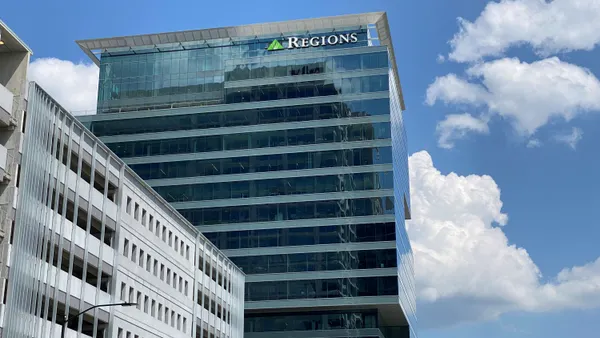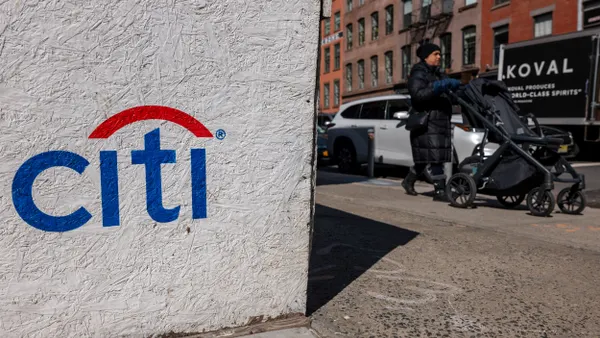Dive Brief:
- A national bank dedicated to financing clean energy technology and infrastructure could mobilize up to $1 trillion of investment over 30 years with just $35 billion of federal funds, according to a white paper from the Coalition for Green Capital (CGC).
- The group examined the impact of a National Climate Bank based on legislation introduced by Democratic senators. The bank would be capitalized with public money and provide financing to smaller green banks or directly invest in clean energy projects.
- The climate bank would operate similar to a development bank, according to CGC, and would be able to partner with private investors to maximize impact and finance large-scale projects. In addition, the bank could "open new markets for investment that will ultimately grow and receive financing without any Climate Bank participation," according to the report.
Dive Insight:
States and cities have taken the lead in setting climate and clean energy goals, including several zero-carbon proposals that would require massive investments in energy technology and infrastructure. However, getting those off the ground is a huge challenge, given the high up-front costs of solar and wind energy and retrofitting existing infrastructure.
To help move those investments forward, 14 states — including New York, Connecticut and Hawaii — have established their own green banks. The idea is to help offer financing to capital-intensive clean energy projects, which can be a challenge to private investors that need a more immediate return on investment. The climate bank, backed by public money, can raise and deploy capital from a variety of sources, without the same pressures.
A federal bank would have a wider scope and bigger capital base, and would also be authorized to help grow banks on the state and local level. The federal proposal examined in the CGC white paper came from a proposal from Sens. Ed Markey, D-MA, and Chris Van Hollen, D-MD. Besides just backing clean energy projects, the proposed bank would also have license to use its capital to accelerate the retirement of coal plants and keep coal in the ground.
Although that bill has little chance of passage under a Republican Senate, the idea has caught on among Democratic presidential contenders. Kamala Harris endorsed the idea in her climate plan. Pete Buttigieg and Julian Castro have proposed similar ideas as part of their own platforms.
"With the impacts of the climate crisis becoming more apparent by the day, there's no time to waste," CGC CEO Reed Hundt said in a statement. "We must mobilize a massive wave of investment to get big projects funded and transition the economy from carbon to clean. The Climate Bank provides a clear and practical way to do exactly that."










